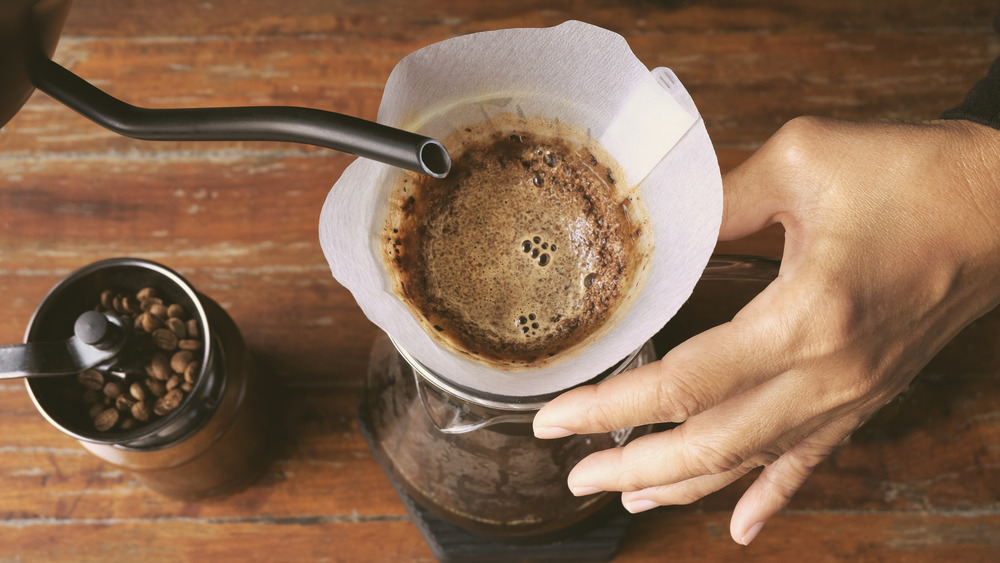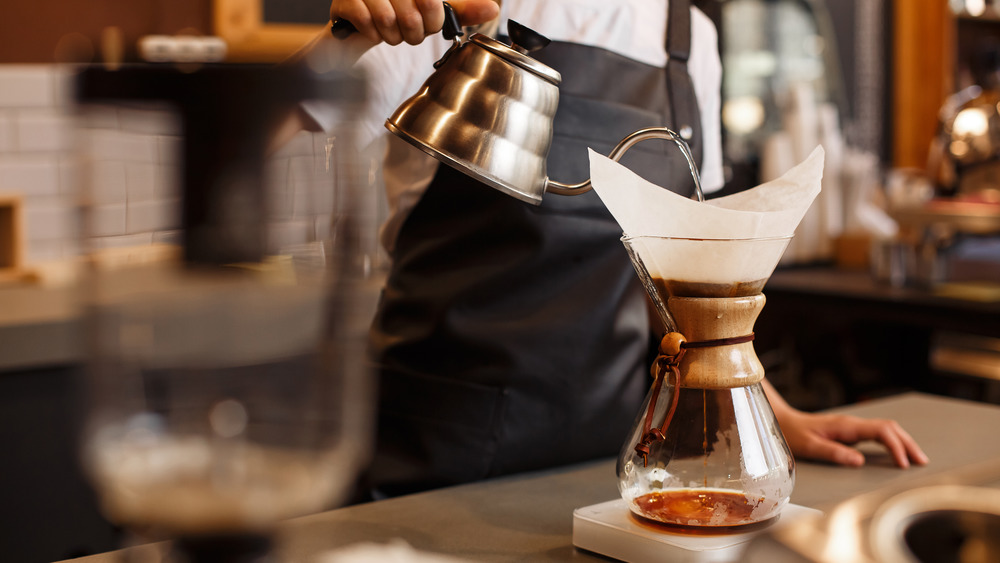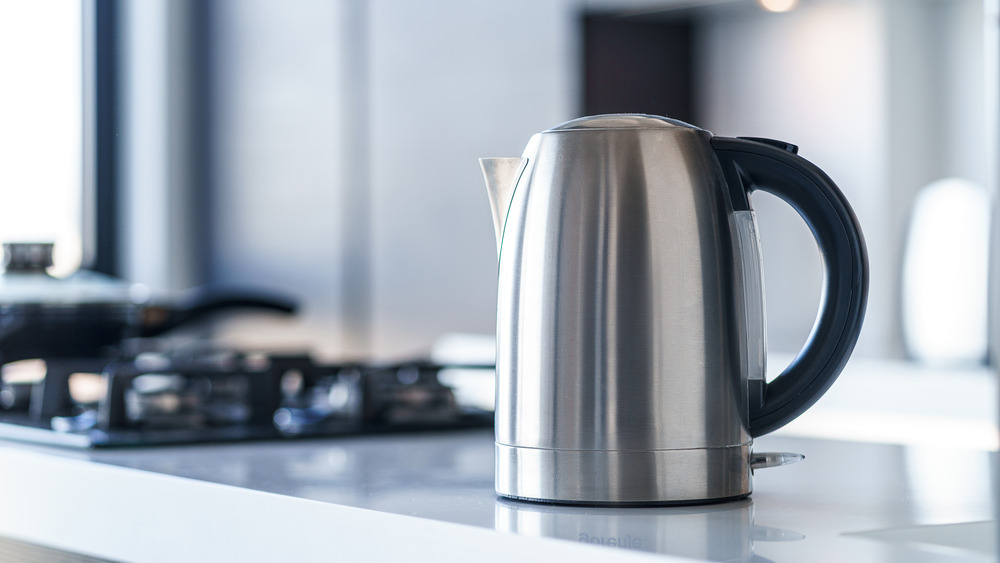The Temperature Of Your Water Might Be Ruining Your Coffee
Brewing the perfect cup of coffee has slowly transformed into an art form. According to Homegrounds, at least 19 brewing techniques have emerged that can whip up the perfect espresso shot or pot of drip coffee, ranging from using the classic French press, to vacuum systems and the AeroPress. With so many options at our fingertips, we often forget how simple the coffee-making process can be. After all, the building blocks of the beverage really boil down to water and coffee beans.
With a drink this simple, quality beans and the right kind of water can make or break your coffee preparation. According to David Yake, Director of Sustainability at Tony's Coffee, most people don't get their water hot enough.
"When it comes to brewing coffee, water temperature is very important and heavily influences the flavors you experience in the cup," Yake told Mashed. "In fact, the most common shortcoming of home coffee makers is that they don't get the water hot enough. Most cheap home coffee makers only heat the water to 190-195 degrees Fahrenheit (if you're lucky)."
What is the perfect water temperature for coffee?
If you want to take your coffee to the next level, you probably need hotter water. "We recommend using water that's between 200-205 degrees Fahrenheit," Yake said. "That translates to roughly 30 seconds off the boil, depending on your elevation. If you want to get really nerdy, it's smart to use slightly cooler water when brewing a dark roast (i.e. 200, or even 195 degrees, for a very dark roast) and slightly hotter water (205 degrees) when brewing a light roast. Lighter roasts require a bit more coaxing to get a full extraction."
According to The Blend, different water temperatures result in different tastes and consistencies because hotter water extracts more oil, acids, and caffeine from the coffee than cooler water. Excess heat can over-extract the beans and strip oxygen from your brew, resulting in a bitter coffee.
"If you use water that's too hot, you can end up with a bitter, over-extracted brew," Yake agreed.
"If you use water that's too cool, you can end up with a sour, under-extracted brew. If you haven't budgeted for a new coffee maker, you can try using a finer grind, which can offset the cooler water and produce a stronger cup of coffee (to a degree, pun intended)."
How can I control my water temperature?
If it feels like a perfect cup of coffee can't happen at home, don't give up! With the right equipment, you can pinpoint your favorite water temperature. "We like Bonavita brewers. They're certified by the Specialty Coffee Association, meaning they heat the brew water to the correct temperature range," Yake explained. "If you like to make pourovers, Bonavita also makes digital thermal carafes so you know your exact brew temp. Although, if you want to splurge, we recommend a Ratio, a Portland, Oregon-based coffee equipment company with serious engineering and aesthetic chops."
With a bit of practice and the right equipment, you too can make a cup of coffee that can rival your local cafe. By remembering how the temperature of water affects your coffee beans, you can take your morning cup of joe to the next level and impress anyone next time you serve up coffee at home. Keep adjusting the heat of your water and you won't regret it!


